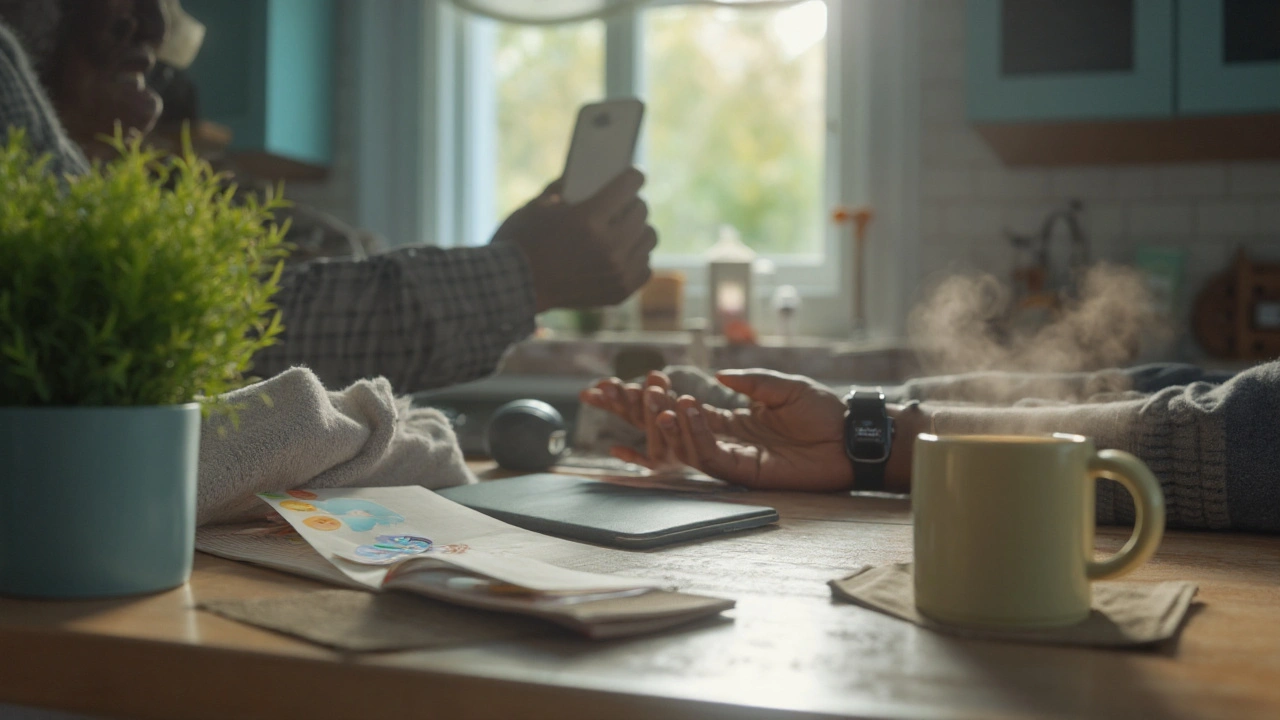Coping Strategies for Everyday Health Challenges
When you’re dealing with a new prescription, a chronic condition, or just the daily grind, it’s easy to feel overwhelmed. The good news is that small, purposeful actions can make a big difference. Below are straight‑forward ways to stay on top of your health without adding extra stress.
Dealing with Medication Side Effects
First, keep a simple side‑effect log. Write down what you take, the dose, the time, and any new symptoms you notice. Over a week you’ll spot patterns that help you and your doctor decide if an adjustment is needed.
Second, ask your pharmacy for an exact list of possible side effects. Knowing what’s normal (like mild stomach upset) versus a red flag (like rash or breathing trouble) lets you act quickly and avoid panic.
Third, stay hydrated and eat a balanced snack when you start a new drug. Food can buffer stomach irritation, while water helps your body process the medicine more efficiently. If a particular drug requires fasting, follow that rule but still sip water.
Finally, don’t ignore non‑physical signs. Mood swings, anxiety, or trouble sleeping can be linked to meds. Talk openly with your healthcare provider; they may recommend a different timing, a lower dose, or a supplemental therapy to smooth things out.
Stress‑Free Lifestyle Hacks
Stress is a hidden side effect of almost any health issue. A quick 5‑minute breathing exercise can reset your nervous system. Inhale for four seconds, hold for four, exhale for four, then repeat three times. You’ll feel calmer without any special equipment.
Movement matters more than you think. A short walk, gentle stretching, or a brief yoga flow releases endorphins that counteract pain and fatigue. Aim for at least 10 minutes a day and notice how it lifts your mood.
Sleep hygiene is non‑negotiable. Keep the bedroom cool, dark, and tech‑free at least an hour before bed. If you’re on a stimulant medication, set a cut‑off time in the afternoon to protect nighttime rest.
Social support doesn’t have to be a big group chat. A quick call to a friend, a supportive forum, or a message to a family member can remind you that you’re not alone. Sharing a single concern often reduces its weight instantly.
Lastly, celebrate tiny wins. Whether you remembered to take your pill on time or managed a stress trigger, acknowledge the effort. Positive reinforcement builds momentum and makes coping feel less like a chore.
Putting these strategies into your routine doesn’t require a major overhaul. Pick one tip, try it for a week, and add another if it feels right. Over time you’ll create a personalized toolkit that helps you navigate medication side effects and everyday stress with confidence.
-
2
Stress can spike dyskinesias. Learn the science, what types it affects, how to track your triggers, and practical tools to calm movements without guesswork.
Tags Weight
- online pharmacy
- side effects
- medication safety
- dietary supplement
- dosage
- online pharmacy safety
- drug interactions
- generic drugs
- health benefits
- allergy relief
- autoimmune disease
- antibiotic
- pharmacy reviews
- affordable antidepressant
- gut health
- safe online meds
- prevention
- patient safety
- NSAIDs
- drug interaction

